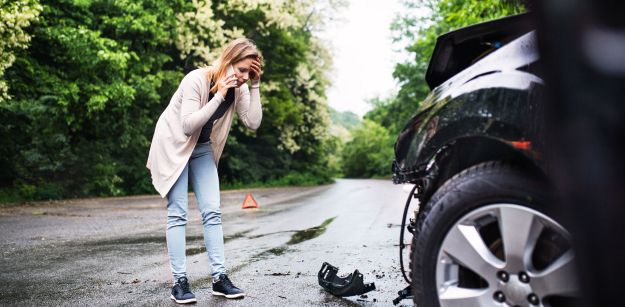Car accidents are unexpected, traumatic events that can have profound and long-lasting effects on individuals. Beyond the initial shock and physical injuries, car accidents can leave a lasting imprint on a person’s life, affecting both their physical and emotional well-being.

In this comprehensive blog post, we will take a closer look at the physical and emotional effects of car accidents, shedding light on the challenges faced by survivors and offering insights into coping and recovery.
Physical effects
Whiplash
One of the most common physical injuries resulting from car accidents is whiplash. Whiplash occurs when the head and neck are suddenly jolted forward and backward, causing strain on the neck muscles and ligaments. The result is neck pain, stiffness, and limited range of motion. For some, the effects of whiplash can persist for weeks or even months after the accident.
Fractures and broken bones
Car accidents can lead to fractures and broken bones in various parts of the body. Whether it’s a fractured arm, leg, rib, or even spine, these injuries often require extensive medical treatment and rehabilitation. The recovery process can be long and challenging, impacting a person’s mobility and quality of life.
Concussion
Traumatic brain injuries like concussions are not always immediately evident after a car accident. Symptoms can include confusion, memory problems, headaches, and mood swings. It’s crucial to seek medical attention if there’s any suspicion of a concussion, as early diagnosis and treatment are essential for recovery.
Internal injuries
Car accidents can cause internal injuries to organs such as the liver, spleen, or lungs. These injuries may not manifest obvious symptoms initially but can be life-threatening if left untreated. Prompt medical evaluation is crucial to identify and address internal injuries.
Soft tissue injuries
Muscles, tendons, and ligaments can suffer strains or sprains due to the force of a car accident. These injuries can lead to ongoing pain, reduced mobility, and the need for physical therapy to regain strength and function.
Emotional effects
Post-Traumatic Stress Disorder (PTSD)
Car accidents are traumatic events, and some survivors may develop PTSD as a result. Flashbacks, nightmares, anxiety, and emotional numbness are common symptoms of PTSD. Seeking therapy and counseling is essential for managing and overcoming these emotional scars.
Anxiety and depression
The emotional toll of a car accident can trigger or worsen anxiety and depression. Coping with the aftermath, including financial burdens, physical pain, and legal issues, can become overwhelming. Many survivors require therapy and medication to manage these mental health challenges.
Chronic pain
Chronic pain often becomes a part of daily life for car accident survivors. Back or neck pain resulting from injuries sustained in the accident can persist for months or years, affecting one’s ability to work and enjoy life.
Disfigurement
Severe accidents can leave survivors with disfigurements or visible scars, impacting their self-esteem and body image. Coping with these changes can be emotionally challenging and may require support from therapists or support groups.
Coping and recovery
Seek medical attention immediately
After a car accident, it’s crucial to seek immediate medical attention, even if injuries are not immediately apparent. Early diagnosis and treatment can significantly impact the outcome and recovery process.
Physical therapy and rehabilitation
Physical therapy and rehabilitation programs can help individuals regain mobility and strength after car accident injuries. These programs are essential for a full recovery.
Emotional support and therapy
Survivors of car accidents should not hesitate to seek emotional support and therapy. Professionals can help individuals cope with trauma, anxiety, depression, and PTSD.
Legal assistance
If the accident was caused by another party’s negligence, it’s essential to seek legal assistance from a car crash attorney in Rose Park to ensure you receive fair compensation for medical expenses, lost wages, and emotional suffering.
Support groups
Joining support groups for car accident survivors can provide a sense of community and understanding, as well as practical advice for coping with the physical and emotional aftermath of an accident.
Conclusion
Car accidents can have far-reaching physical and emotional effects that extend well beyond the initial collision. Survivors often face a challenging journey of recovery, both physically and mentally. Seeking prompt medical attention, therapy, and legal support are essential steps toward regaining control and rebuilding life after a car accident.
Remember, you’re not alone, and there is help available to navigate the physical and emotional challenges that arise in the aftermath of a car accident.